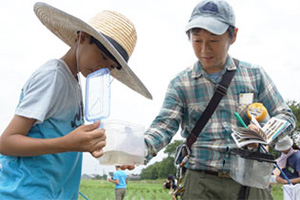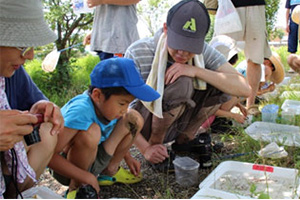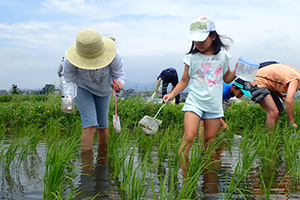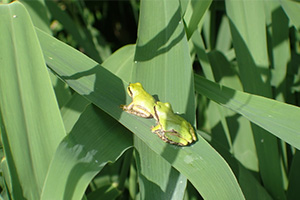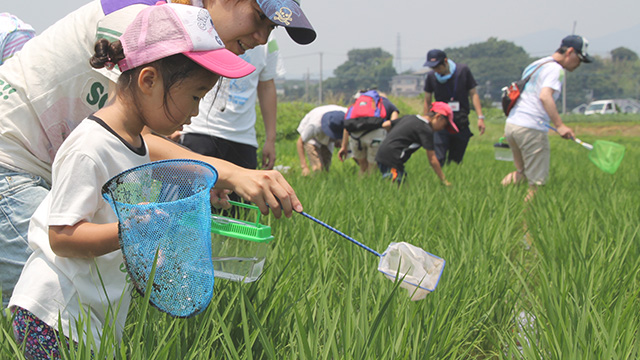
Environmental Activities
Rice paddy organism surveys
ZEN-NOH conducts rice paddy organism surveys to give participants a real sense of the deep connections between farming and the environment, as well as the importance of conserving biodiversity. Producers, consumers, and children go into rice paddies to find out which creatures live in them. This provides participants with a greater understanding of and interest in the future of farming, food, and the environment in Japan.
Japan’s rice paddies are home to numerous living creatures that exist in harmony with the rice plants, creating a whole ecosystem. Participants are told that (1) rice paddies not only produce rice, but also nurture various organisms at the same time; (2) the maintenance of local ecosystems, including rice paddies, is the result of the farming practices of producers; and (3) farming by producers is supported by consumers who continue to eat rice. Producers are asked to strive even harder to produce safe, reliable rice by considering environmentally friendly farming practices.
